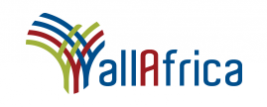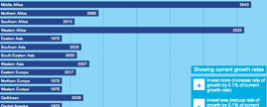Kenya: Most Nairobi Women Prefer Implants – Report
Nairobi residents are quickly warming up to long-term family planning methods, data collected from city health facilities reveals. Contraceptive implants are the fastest growing option in the city followed by injections. The demand for implants rose 54 per cent last year, compared to 2011, according to the data released by county reproductive health co-ordinator Angela Njiru… Read the full post >>
Men Must Plan Their Families
“I told them, ‘Any man could be the father of the next president, if he carefully planned his family,’” said Bridget Anyafulu, executive director of the International Centre for Women Empowerment and Child Development… Read the full post >>
Family Planning: 3 Barriers Only Women Understand
Opening access to Family Planning is the most powerful tool the world has for increasing child survival, decreasing maternal mortality, and unlocking the economic potential of women. And yet, 220 million women in developing countries who don’t want to get pregnant lack access to family planning services… Read the full post >>
IYWG Will Provide Daily Coverage of Youth at ICFP
A focus on youth and youth participation will be a cornerstone of this year’s International Conference on Family Planning and we are thrilled to announce that we will be bringing you daily coverage! Read the full post >>
Using mobile phones to give young people full access, full choice
The Citizen // by Stella Barozi – Young people aged 10-24 constitute 25 per cent of the world’s total population, according to the World’s Youth 2013 Data Sheet by Population Reference Bureau (PRB). Lack of information and reproductive health services also puts both young girls and boys at risk of contracting sexually transmitted diseases such as HIV. In view of this, some international organizations are coming up with strategies to give young people full access and full choice of quality reproductive health information and services. Full post >>
Africa: Be Bold, Do Not Shy Away – Girls and Women Have the Right to Access Family Planning Services
“Unmet need”, in the context of family planning, is a rather mundane term that masks an urgent social justice and human rights issue. An estimated 220 million women in the world who want to manage their fertility, and plan their lives, do not have it, because they lack access to contraceptives… Read the full post.
Finishing the family planning revolution
Developed regions have seen contraceptive use plateau within the range of 60% to 80%.
If current trends continue, south Asia will not see contraceptive prevalence hit 60% for approximately 20 years, while this will not happen in eastern Africa for 45 years or in middle and west Africa for a startling 500 years…View the full post









